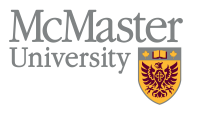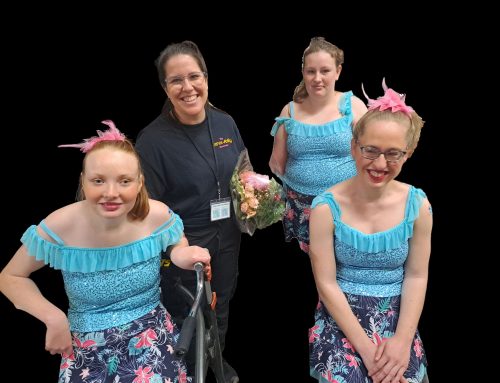Mallory & Chelsea answer your FAQ’s about getting involved with research
The success of our Dance Ability Movement classes relies on engaging parents in our program. They know better than anyone else what their child’s strengths are and share with us valuable insights to help us offer a meaningful and engaging dance program for their child.
With more than 10-years of experience working with our dancers’ families, our Director of Quality & Improvement, Mallory Ryan, has decided to take her knowledge on parent engagement to a different level. Mallory recently participated in the Family Engagement in Research Certificate program through McMaster University (CanChild), and Kids Brain Health Network. Mallory learned from researchers, clinicians and parents about how to involve parents and community members on research teams.
“We are continually learning from our dancers and their families about what is important to them. This engagement is now needed at the research level – in order to make research accessible and meaningful, and to impact service delivery to all children with disabilities!”, says Mallory Ryan.
As part of their final project in the course, Mallory and Chelsea, her course partner, developed together the following FAQ’s on the importance of Family Engagement in Research. You can also find other resources and valuable information about it on our new content page on our website HERE.
We hope this information empowers parents to recognize the value they bring to the research field!
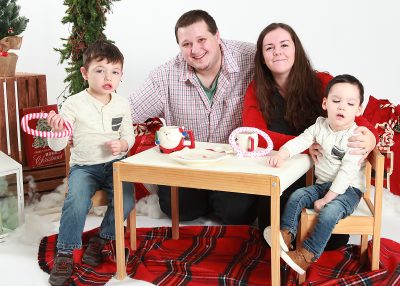
Meet Chelsea
Chelsea is the very proud mother of two amazing little boys. Her oldest son has a rare genetic condition and her youngest has cerebral palsy. Over the last few years, she has joined advisory networks, participated in research, and celebrated every milestone. She knows how vital families are to research and hopes to see family engagement in research continue to thrive.
Together, Chelsea & Mallory answer some Frequently Asked Questions (FAQ’s) about Family Engagement in Research
“I don’t have any research experience, what do I have to offer?”
Chelsea: As parents and family members, our lived experience is so valuable! We experience the day-to-day with our children and know their strengths and struggles. We know our children best and this is exactly why we need to be involved in research! We bring a different perspective to research that cannot be gained anywhere else. This is why families need to be engaged in research as partners, not just participants. By collaborating at every stage in research, we are ensuring that the result is something impactful and valuable.
Mallory: As Occupational Therapists, we believe that success, meaning, happiness and health all stem from the ability to participate. At The Dance Ability Movement, we have learned SO MUCH from our dance families. The early success of our classes was because of this parent engagement within our program – parents who don’t know anything about dance have been the best teachers in guiding us to offer a meaningful, engaging dance program for their child. We are continually learning from our dancers and their families about what is important to them. This engagement is now needed at the research level – in order to make research accessible and meaningful, and to impact service delivery to all children with disabilities!
“What is the time commitment or travel involved?”
Chelsea: This can vary between projects. There can be a large time commitment involved in certain studies, while others may require a quick survey. It is important to find out the commitment involved beforehand, so you know if this is something you can realistically fit into your schedule. It is always good to ask about flexibility at the beginning as well. As many of our children may have additional health and medical concerns, illnesses and hospital stays are things that we may also have to take into consideration. It is helpful to know what flexibility is available, whether it be online communication or adjusted scheduling.
Mallory: It is so important to communicate with the research team to clarify roles, responsibilities and logistics. It’s also important to discuss compensation for your time. With advances in technology there are often opportunities to engage in the research process remotely (via online platforms for example). There are many ways to be involved, and you should choose the level of engagement that is right for you.
“My child can’t participate in an interview, how is research accessible for us?”
Chelsea: If your child requires accommodations or adaptations, this might add another layer of apprehension for you. However, most research projects are able to make any modification needed. If you need to physically go to a location, they are almost always wheelchair accessible. If your child does not verbally communicate, they may be able to use their augmented communication device or have someone translate if possible. As parents we are used to being advocates for our children and never be afraid to speak up and let your research partners know what accommodations are needed. By being engaged in the development of the research, we can make sure these accommodations are being put in place from the very beginning.
Mallory: This is precisely WHY we need family engagement in the research process – how else are researchers going to know that their methods are not accessible for the population they are targeting? You provide lived experience for researchers to help set priorities for research questions, accessibility (including the need for flexible timing etc) for data collection, and you can even be involved with recruiting participants, collecting or analyzing data, and sharing the results!
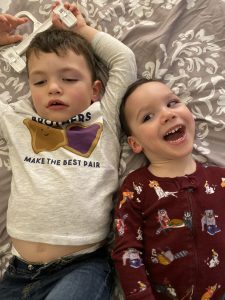
“How is research used? Will it make a difference?”
Chelsea: The research can be used a number of ways! Often the research is done with a medical team and can be part of developing new treatments or care plans. Research may also be done to create new extracurricular programs for children, create adapted equipment, or improve aspects of daily living. Research reaches all areas and you can choose what best fits your family and what you value. Whatever research projects you engage in, please know that it will be making a difference.
Mallory: We need your help to build a more inclusive society, and to develop therapy that is meaningful for your child and family. We need your voice to be heard in the research field – where evidence is built – this is how medical professionals access information to support their practice, and how services, policies and programs can achieve best practices that meet your needs.
“Where do I start?”
Chelsea: A great place to start is with your medical team. It is good to let them know that you are interested in being involved in research, as they may know of a study in need of parent partners. Outside of your team, there are other ways to get started as well. You can become a member of an organization related to your child’s diagnosis (Ontario Federation for Cerebral Palsy or Canadian Down Syndrome Society, for example) or network with others at conferences. Once you become engaged in research, you may find that research partners will begin to reach out to you to become more involved. We have linked some resources for you that might help you get started on the Family Engagement in Research content page.
Mallory: Research can seem daunting. Don’t feel you have to jump right in. For me, I started by connecting with organizations who were doing work that aligned with my work and interests. Attending the National Symposium for Dance and Well-Being in Montreal, a conference open to anyone interested in dance and health, was one of the best experiences I’ve had – it included researchers, dance therapists, teachers, and patients – and was a fabulous way to connect, learn, and advance the need for dance in health care.
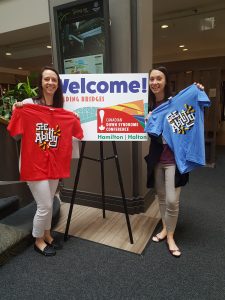 When Jade and I presented about our dance program at the Canadian Down Syndrome Society Conference in 2018, some of our Dance Ability Movement parents in the audience shared the impact that dance had on their children’s lives. Rachel Teplicky, from CanChild Centre for Disability Research (based out of McMaster University) who was also in the audience expressed how these perspectives and voices were needed in research. I later connected with Dr. Andrea Cross from CanChild and discovered that her “F-words” research supported the work we do connecting health and participation for kids! I’ve since had the opportunity to present our work for CanChild’s research team, to collaborate on projects that advance the research and build evidence to guide our services, and to participate in this Family Engagement in Research course!
When Jade and I presented about our dance program at the Canadian Down Syndrome Society Conference in 2018, some of our Dance Ability Movement parents in the audience shared the impact that dance had on their children’s lives. Rachel Teplicky, from CanChild Centre for Disability Research (based out of McMaster University) who was also in the audience expressed how these perspectives and voices were needed in research. I later connected with Dr. Andrea Cross from CanChild and discovered that her “F-words” research supported the work we do connecting health and participation for kids! I’ve since had the opportunity to present our work for CanChild’s research team, to collaborate on projects that advance the research and build evidence to guide our services, and to participate in this Family Engagement in Research course!
Another well-known influencer who we had the opportunity to meet through the Family Engagement course, is Rachel Martens. Rachel is a Family Engagement Coordinator for CanChild and Kids Brain Health Network; she can connect researchers with other influencers across disability groups, parent groups, institutions, and areas of interest. She is also part of the ENVISAGE study. You can follow her blog here.
“Nothing about us, without us” We hope this information empowers you to recognize the value you bring to the research field. We would love to receive feedback or hear about your reflections from this post! Mallory can be reached at mallory@danceabilitymovement.com
Content was created as part of the McMaster University, CanChild, and Kids Brain Health Network Family Engagement in Research Certificate of Completion Program. Copyright © 2020 (Mallory Ryan & Chelsea Hand). All Rights Reserved.
We would like to thank our instructors Dr. Andrea Cross, Donna Thomson and Connie Putterman as well as the participants of the Winter 2020 Family Engagement in Research program for their support in the development of our knowledge and resources.
References
Black, A., Strain, K., Wallsworth, C., Charlton, S.G., Chang, W., McNamee, K., & Hamilton, C. (2018). What constitutes meaningful engagement for patients and families on research teams? Journal of Health Services Research & Policy, 0(0),1-10.
Curran, J.A., Bishop, A., Chorney, J., MacEachern, L., & Mackay, R. (2018). Partnering with parents to advance child health research. Healthcare Management Forum, 31(2),45-50.
Van Meeteren, K.M., Klem, M. (2018). Parental involvement: A critical reflection.*
*Note: This is a chapter written by two parent partners on their experience partnering on a doctoral student research project.

